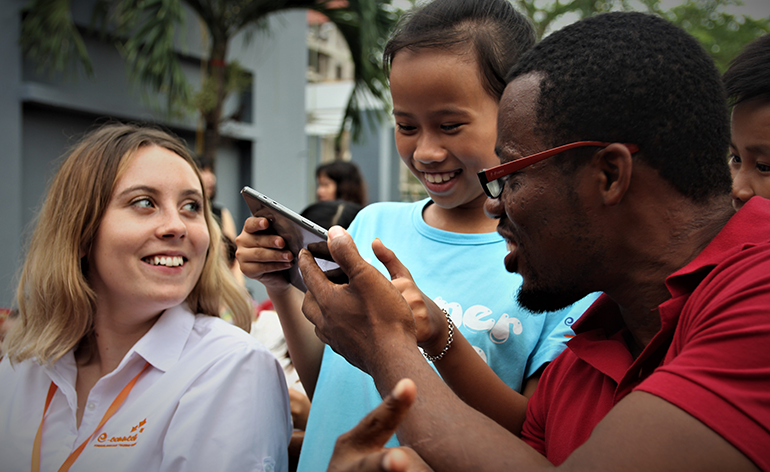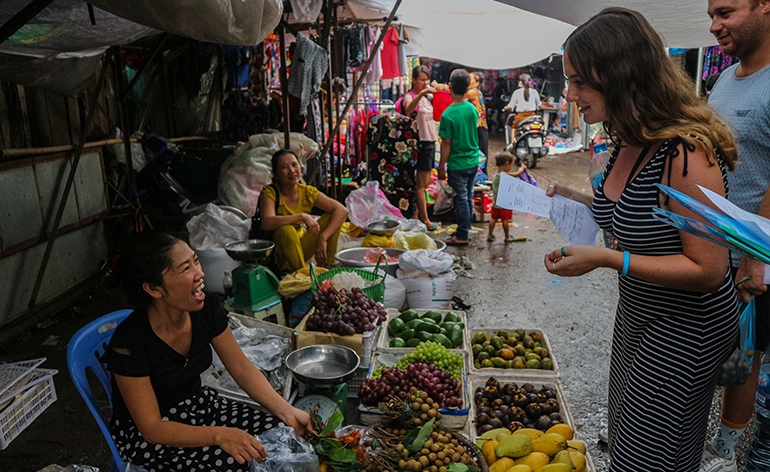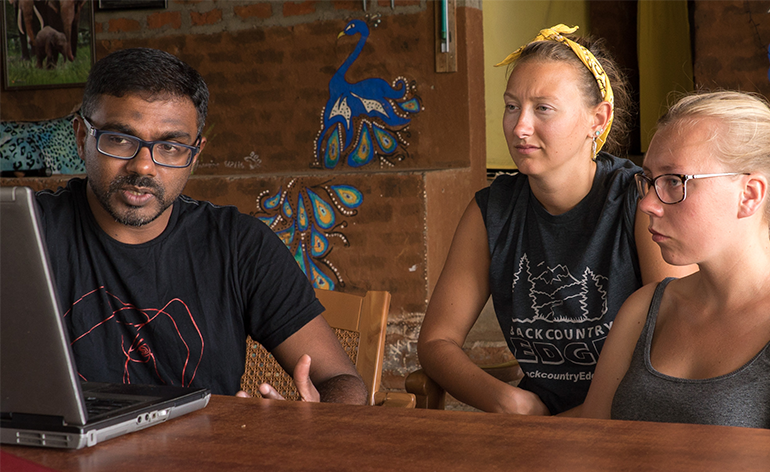There are so many different apps available to assist you in your travels, but many of them are geared towards short-term vacationers to help put together an itinerary or find the cheapest flight. While those apps will be useful when you have some time to plan a vacation, you’ll want to add a few apps to your phone that will make your day-to-day life a little easier. Below are a few of our favorite (free!) apps:
General
Maps
- Downloaded Google Maps
- Maps.me
- City Maps 2Go
Even if you do decide to get a data plan for your phone while you’re abroad, it’s still a good idea to limit your use of it as much as possible. Downloading maps before you leave home or a wifi hotspot helps you not get lost and save some data! Everyone has their preference, but these are the three most used map apps.
Communication
- Facebook Messenger
- Kakao Talk
- Line
Another way to save on your phone plan is to find out which free messaging app is popular in your host country. WhatsApp is the most common in general, Kakao is most popular in Korea and Line is prevalent in Thailand and Japan.
Learning the Local Language
- Duolingo
- Memrise
Duolingo and Memrise are the two most popular language learning apps. They are free and structured so that you only have to study for 10 minutes a day. They offer a wide range of languages but aren’t 100% inclusive so you may need to seek out a language-specific app for some countries, like Thailand.
Language On the Fly
- TripLingo
- Scan & Translate
- Google Translate
Duolingo is good for the continuation of learning a language, but sometimes you need quick translation or an easy way to lookup a word/phrase. TripLingo is truly amazing. With over 100 destinations available, the app offers basic phrases and slang terms to help you sound more like a native. There is also a live translator option that actually works well, a dictionary and a culture guide for each destination. Google Translate is a good guide if you’re stuck on a certain word, but gets messy (i.e. wrong) when you start asking for full sentences. Scan&Translate allows you to take a picture of text and translate it which comes in handy when the local language doesn’t use the Roman alphabet.
For the Classroom
- Kahoot
- FluentU
- Words With Friends
- Heads Up
Phones are generally not allowed in the classroom, but you know the kids have them anyway and are trying to sneak glances when your back is turned, so why not turn a negative into a positive? Kahoot is an app where students use their phones to answer questions in a quiz that you made which can either be taken in teams or individually. FluentU is normally used as a language learning app (like Duolingo) but they have a ton of authentic English-speaking video clips to supplement your lessons. Games that are traditionally not educational like Words with Friends and Heads Up can still be used as a fun way to incorporate English in your classroom.
VPN
- NordVPN ($40/year)
- PureVPN ($40/year)
- Safer VPN ($6/month)
A VPN (Virtual Private Network) is an app on your phone (or software on your computer) that protects your device with less secure networks, like public wifi, by encrypting the connection and using a different IP address. VPN’s are not free, but they’re on this list for their usefulness – travelers benefit from a VPN mostly for streaming services that are unavailable outside of their home countries, like Netflix for example. The VPN is most useful for those living in China where most apps are blocked (Facebook, Instagram, Gmail, Google) but Netflix and Spotify aren’t always available in other countries and they’re nice to have, too.
Transportation
- Uber
- Moovit
Uber isn’t always available in every country, but most places will have their own version of Uber to make up for it. Moovit works on desktop and has an app to help you find the fastest way from Point A – Point B with whatever public transit is available. There is a wide range of countries and cities available with Moovit so it’s great to use when you’re traveling for vacation too!
Miscellaneous
- Money – XE Currency
- Easy way to convert multiple currencies
- Safety – Smart Traveler (US Citizens)
- Sign up for the STEP program before you leave home and stay up to date with safety in your host country with this app
- Food – Happy Cow
- Use this app to find vegetarian-friendly restaurants or dishes in your area
Country-Specific Apps
Korea
- Kakao Talk
- Kakao Metro
- Kakao Bus
- Kakao Taxi
- Kakao Maps
Kakao everything!
Thailand
- Learn Thai, Thai Pod 101
- Language learning apps specifically for Thai that offer short, manageable lessons
- Grabcab
- Especially on the islands or Bangkok, this app really gives you an idea of what you should actually be paying even if you don’t use it to hail a cab
- Next Station
- Map of the all the Bangkok public train stops including the BTS, MRT and Airport line
- Food Panda
- Food delivery app similar to Seamless that can be used in big cities like Bangkok and Chiang Mai
Europe
- Flixbus
- Find bus routes, schedules and buy tickets around Europe
- CityMapper
- Navigation tool that displays public transit info, such as cost and live departure times of buses and trains. It will even tell you the best section of the train to find a seat! CityMapper mostly has European cities, but there are a few other destinations like Seoul, Istanbul and Hong Kong.
- Trenitalia
- Mobile ticketing for Italy
China
- WeChat
- Similar to Kakao, WeChat is a savior in China. You use it to text, as a social media platform, to order food for delivery and even to pay your bills or a cab fare!
- VPN
- Everyone has their preferred VPN, but if you want to continue using your favorite social media platforms, you’ll need to shell out the money each year for a VPN on your phone and laptop
New Zealand
- Grabaseat
- Find super cheap domestic flights
- First Table
- Discounts for participating restaurants
- Grabone
- Similar to Groupon








